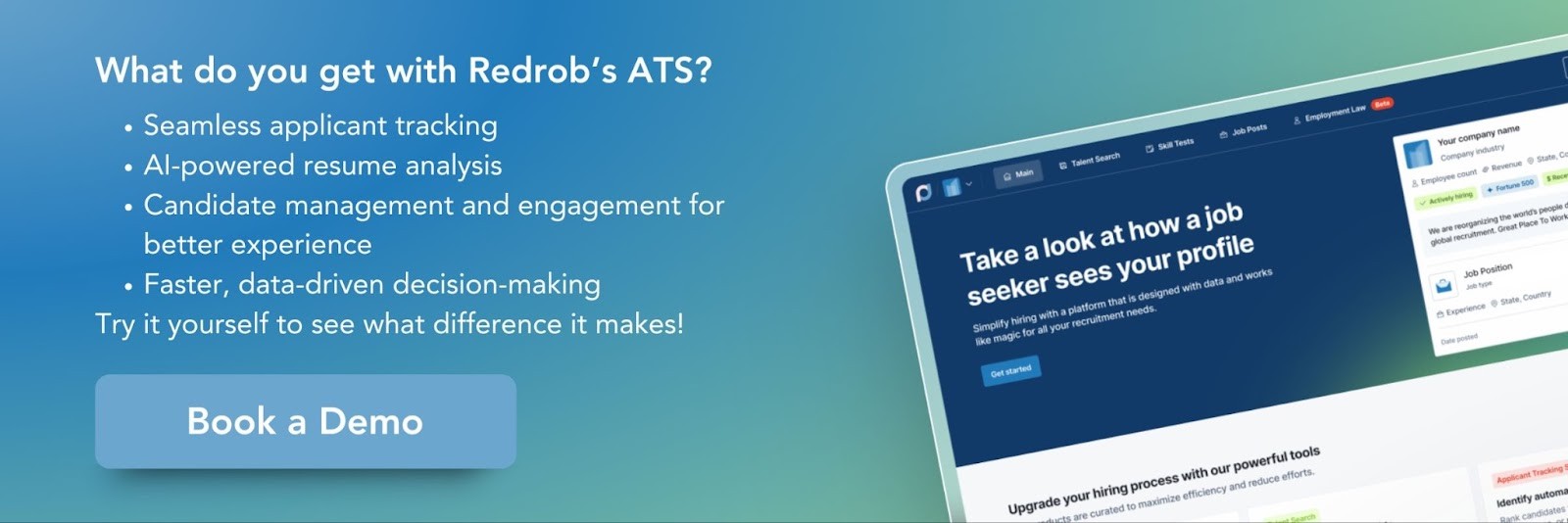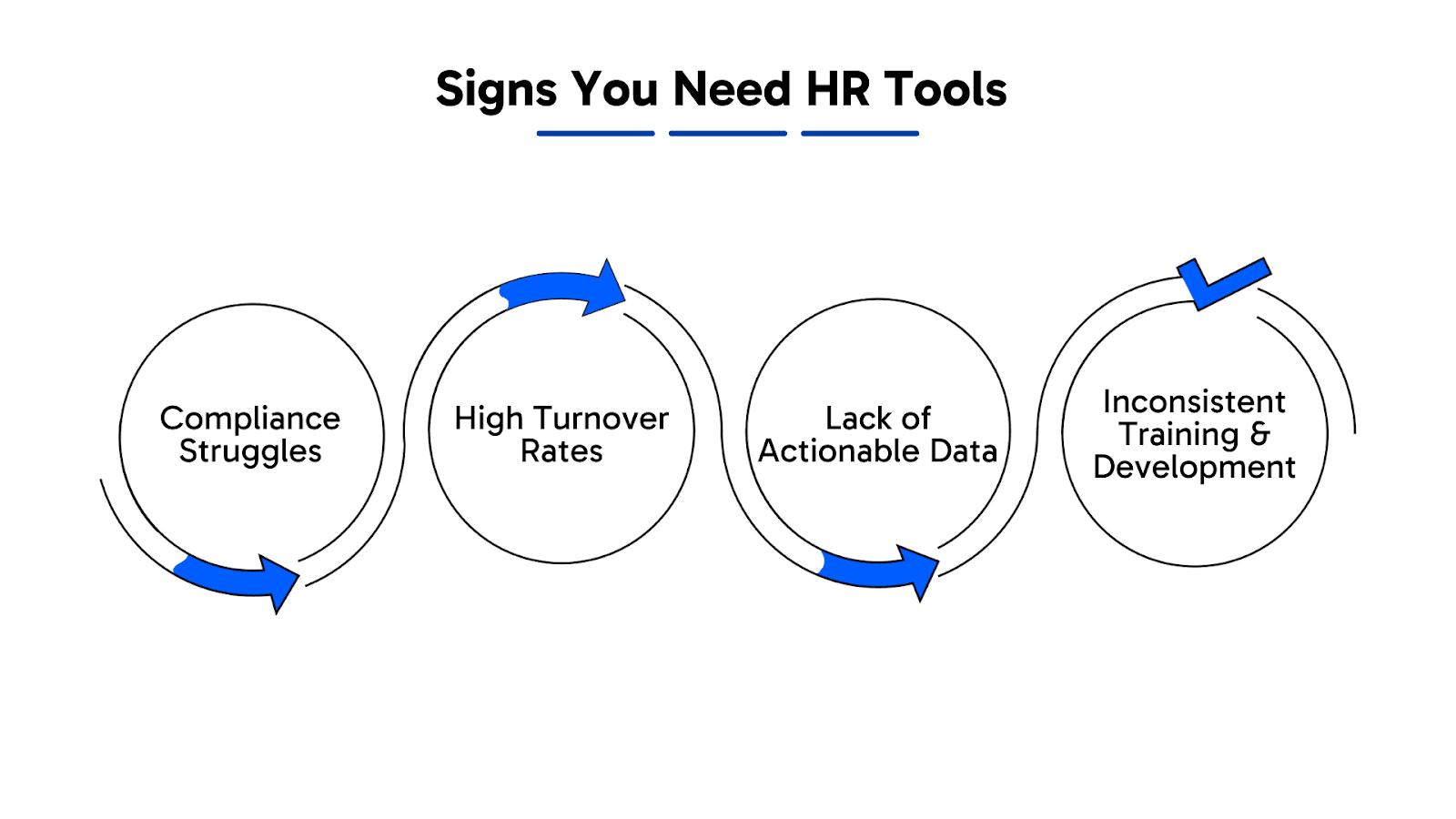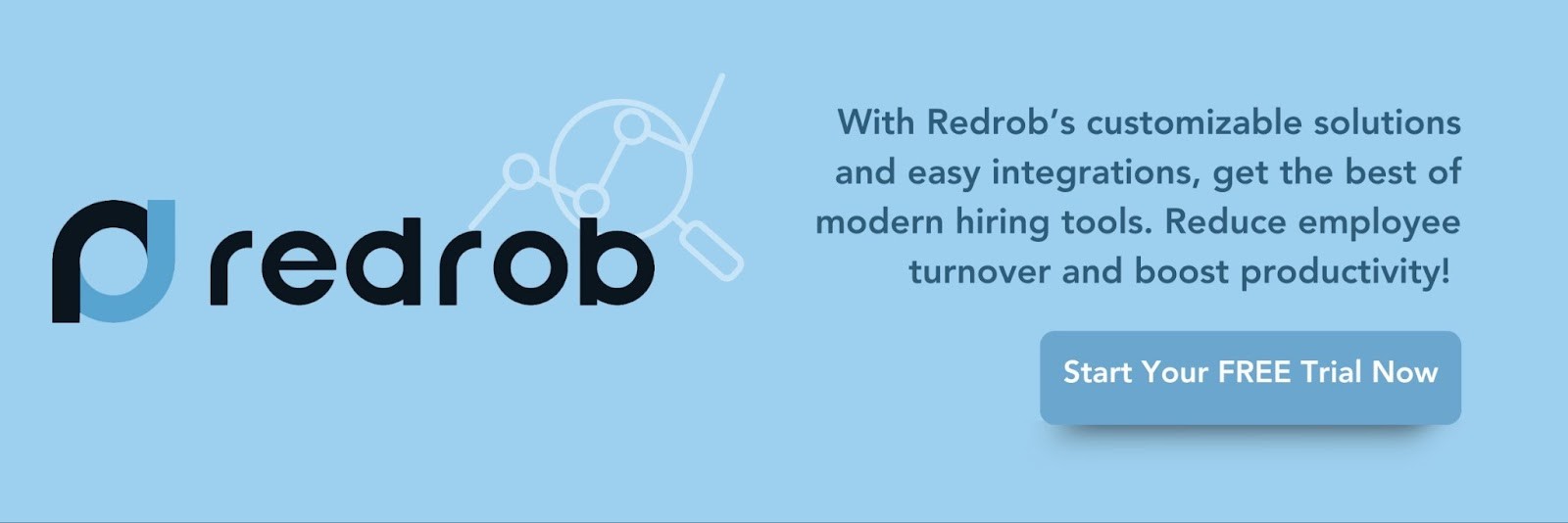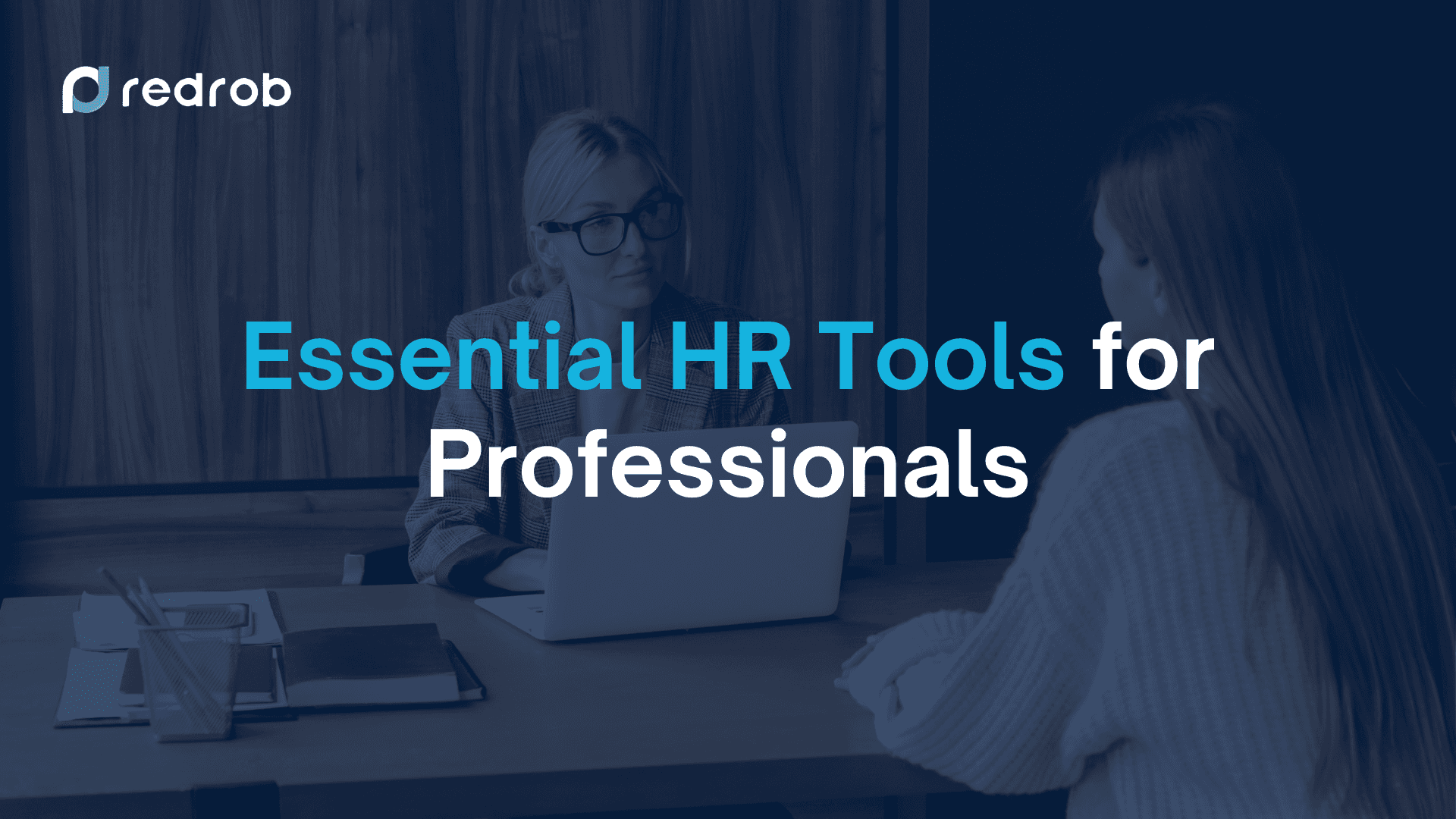Human Resources
Essential HR Tools for Professionals

Soumyata Singh
Dec 9, 2024
5 mins read
As a recruiter, you must know that time is precious and accuracy is everything. When managing recruitment, performance evaluations, and employee engagement, juggling these demands without error is challenging. That’s where a reliable HR tool steps in, streamlining complex processes and ensuring you can focus on what truly matters—strategic, high-impact decisions.
Think of an HR tool as more than just software. Whether it’s an app, platform, or system, each tool has a unique role in your HR ecosystem. From refining recruitment to driving continuous engagement, these tools bring efficiency and clarity. Automating repetitive tasks frees up time, so you can concentrate on building a stronger workforce and a resilient company culture.
So, if you’re ready to learn how HR tools can simplify your work and amplify your impact, let’s explore.
Key Qualities of Effective HR Tools
Choosing an HR tool isn’t just about quick fixes but long-term success. Practical HR tools go beyond basic functionality to meet the evolving needs of your business. Let’s explore the key qualities of an HR tool that supports growth, enhances usability, and drives better decision-making.
1. Scalability to Grow with Your Business
A strong HR tool should expand as your company grows. Look for tools that adapt to increasing data, users, and workflows without requiring an overhaul. For instance, a scalable HR tool can handle a growing employee base while supporting new modules as your team’s needs evolve. This ensures continuity and efficiency as your organization scales.
2. Intuitive Interface and Ease of Use
An HR tool is only valuable if your team can use it confidently. Tools with intuitive interfaces require less training, saving time and boosting productivity. Look for options that present data and features simply and clearly, enabling your HR team to access what they need quickly.
3. Integration for Seamless Data Flow
Your HR tool should connect smoothly with other business systems. Integration capabilities help streamline data flow between payroll, finance, and employee management. This reduces errors and ensures that you have complete, up-to-date information at all times. A tool with open API capabilities or pre-built integrations with popular business platforms like Slack or Salesforce makes this process easy.
4. Data-Driven Decision-Making with Comprehensive Analytics
Practical HR tools should help you make data-backed decisions. Comprehensive analytics let you track hiring, performance, and engagement metrics, revealing insights that guide your strategies. For instance, a retention analytics tool can highlight trends, allowing you to address turnover issues proactively. Analytics empower you to base decisions on concrete data rather than guesswork.
5. Customization for Unique Workflows and Permissions
No two HR teams are the same. The best tools offer customization options to adapt to your workflows and allow permission-based access. Whether you need unique data fields, approval workflows, or specific role-based access, customization enhances the tool’s relevance to your team.
6. Cost-Effectiveness and ROI
An HR tool should be a strategic investment that pays off. Look beyond the upfront price to consider long-term ROI. Does the tool reduce manual work, lower turnover, or improve recruitment success? Choosing cost-effective tools with a proven ROI allows you to maximize your budget without compromising functionality.
With these qualities in mind, you’re well-prepared to choose an HR tool that supports your team’s success. Next, consider how the right tools can tackle today’s biggest HR challenges.
Overcoming HR Challenges with Tools
Today’s HR teams face complex challenges, from managing remote workforces to promoting diversity. The right HR tool can make these challenges more straightforward to handle. Let’s explore how tools help HR teams adapt and thrive in today’s dynamic work environment.
1. Adapting to Remote Work with Engagement Tools
Remote work has become a staple, but keeping employees engaged at a distance isn’t easy. Engagement tools, like virtual communication and recognition platforms, keep teams connected and motivated. A good HR tool for remote engagement might include features like pulse surveys, team shout-outs, and digital team-building activities. With these capabilities, you can maintain morale and foster a strong sense of community, no matter where employees work.
2. Ensuring Compliance with Regulations Through Updates
Compliance is non-negotiable, but staying on top of changing regulations takes time and effort. An effective HR tool simplifies compliance by automatically updating to meet new standards. For example, HR software often includes compliance tracking for labor laws, payroll regulations, and tax requirements. With an up-to-date HR tool, you reduce the risk of costly penalties and consistently ensure your company meets regulatory standards.
3. AI-Driven Recruitment for Securing and Retaining Talent
Recruiting top talent is critical but time-consuming. AI-driven HR tools streamline this process, helping you identify strong candidates quickly. For example, AI can screen resumes for relevant skills, reducing manual sorting time by up to 75%. These tools can also assess candidates' long-term potential, lowering turnover rates by identifying best-fit hires. With AI, you secure talent faster and make data-based hiring decisions.
4. Promoting Diversity, Equity, and Inclusion (DEI)
Building a diverse and inclusive workplace is a top priority for today’s HR teams. Tools focused on DEI provide analytics on workforce demographics and help identify hiring and retention gaps. An HR tool can promote a more equitable environment with features like anonymous feedback surveys and diversity tracking. Using DEI-focused analytics, you can make data-driven decisions to improve your workplace culture and ensure all employees feel valued.
HR tools are invaluable for tackling these challenges, but they offer even more potential when tailored to meet your organization's specific needs. Let’s now dive into the types of HR tools that can support these goals effectively.
Types of Essential HR Tools
The right tools are essential for efficiency and success in a modern HR department. Each HR tool plays a specific role, whether managing recruitment or tracking employee performance. Here’s a look at the essential tools that support every stage of the employee journey.
1. Recruitment and Applicant Tracking Systems (ATS)
A robust ATS helps you manage the hiring process from start to finish. This HR tool streamlines candidate sourcing, screening, and interviewing, allowing you to hire top talent more quickly. Many ATS platforms also integrate with job boards and allow automated candidate communications, saving time on routine tasks. Using ATS like Redrob can reduce the time-to-hire up to 60% or more.

2. Performance Management Systems
Effective performance management systems provide ongoing feedback and track employee progress toward goals. This HR tool allows you to conduct regular check-ins, performance reviews, and 360-degree feedback assessments. This data-driven approach allows managers to recognize achievements and identify areas for improvement, ultimately boosting employee performance and retention.
3. Employee Engagement Tools
Employee engagement tools help keep your team motivated and connected. These platforms often include features like pulse surveys, recognition programs, and team collaboration channels. For remote and hybrid teams, engagement tools are especially valuable, providing insights into employee satisfaction and morale. By actively using engagement tools, HR teams can increase employee engagement by up to 25%, as reported in several studies.
4. Learning Management Systems (LMS)
Training and development are crucial for employee growth, and an LMS makes it easier to provide structured learning opportunities. With an LMS, you can offer online courses, track progress, and assess knowledge, all within a single platform. This HR tool allows easy content updates, ensuring your training materials stay relevant.
5. Benefits Administration Platforms
Benefits administration platforms simplify the process of managing employee benefits. These tools offer employees access to health, retirement, and other benefits options, allowing them to make informed decisions. A comprehensive benefits platform also supports HR teams in tracking enrollments, managing costs, and ensuring compliance with benefits-related regulations.
6. HR Information Systems (HRIS)
An HRIS is an all-in-one solution for employee data management. This HR tool centralizes information on payroll, recruitment, performance, and benefits, providing a single source of truth for HR data. With a good HRIS, you can access and update data quickly, saving time on administrative tasks.
7. Payroll Systems
Payroll systems are essential for accurate and timely payroll processing. They help manage employee wages, tax withholdings, and benefits deductions automatically. Many payroll systems integrate with other HR tools, ensuring accurate data transfers and reducing errors. A well-implemented payroll system reduces processing times and minimizes compliance risks.
8. Time and Attendance Systems
Tracking employee hours and attendance is critical for both productivity and compliance. Time and attendance systems enable you to monitor work hours, manage leave requests, and track overtime. For businesses with hourly or remote workers, these systems provide the structure for accurate time tracking and fair scheduling.
With these essential HR tools, you can handle every aspect of employee management. Now, let’s explore how to recognize when to upgrade or implement new HR tools in your organization.
Signs You Need HR Tools

Not sure if you need an HR tool? Certain signs indicate it may be time to invest in one. From managing compliance to improving retention, an effective HR tool can help address these challenges with data-backed solutions and streamlined processes.
1. Compliance Struggles
Keeping up with HR compliance can be overwhelming. If you’re frequently worried about meeting regulatory standards, an HR tool could be the answer. Many HR tools track compliance automatically, ensuring your data aligns with labor laws and industry standards. For example, HR compliance software often includes automatic updates on new regulations, helping you stay compliant and avoid penalties.

2. High Turnover Rates
High turnover can signal deeper issues within your organization. When employees leave frequently, it’s a sign that something isn’t working. An HR tool with retention analytics can help you identify patterns behind turnover, such as inadequate onboarding or low employee engagement. Tracking these metrics gives you insights into what needs improvement, allowing you to make data-driven adjustments and retain top talent.
3. Lack of Actionable Data
You're likely missing key insights if data don’t back your decisions. An effective HR tool collects, organizes, and analyzes hiring, performance, and engagement data. This data allows you to make informed choices, from hiring candidates to improving team morale. Without actionable data, it’s difficult to identify issues early or adjust strategies for better outcomes.
4. Inconsistent Training and Development
Inconsistent training affects both productivity and employee satisfaction. An HR tool with a built-in learning management system (LMS) ensures all employees receive consistent, high-quality training. This approach also lets you track progress, ensuring employees stay on top of required skills. Companies using an LMS report 60% higher employee engagement, showing the value of structured, consistent training.
Recognizing these signs early helps you implement an HR tool before issues escalate. Next, let’s look at how these tools enhance the employee experience.
Conclusion
Incorporating an HR tool into your organization is no longer just an option; it’s essential for making smarter, faster decisions. With the right tools, you can streamline processes, increase efficiency, and gain valuable insights from your HR data. More importantly, an effective HR tool enhances the employee experience, providing a supportive, transparent, and engaging workplace.
Redrob offers a suite of innovative HR solutions designed to meet these needs. From recruitment to performance management, Redrob’s tools support every stage of the employee journey. Each solution is built with integration, ease of use, and scalability, ensuring you can tackle today’s challenges and prepare for tomorrow.
Ready to transform your HR approach? Try Redrob’s solutions today and experience the difference they can make for your team.
